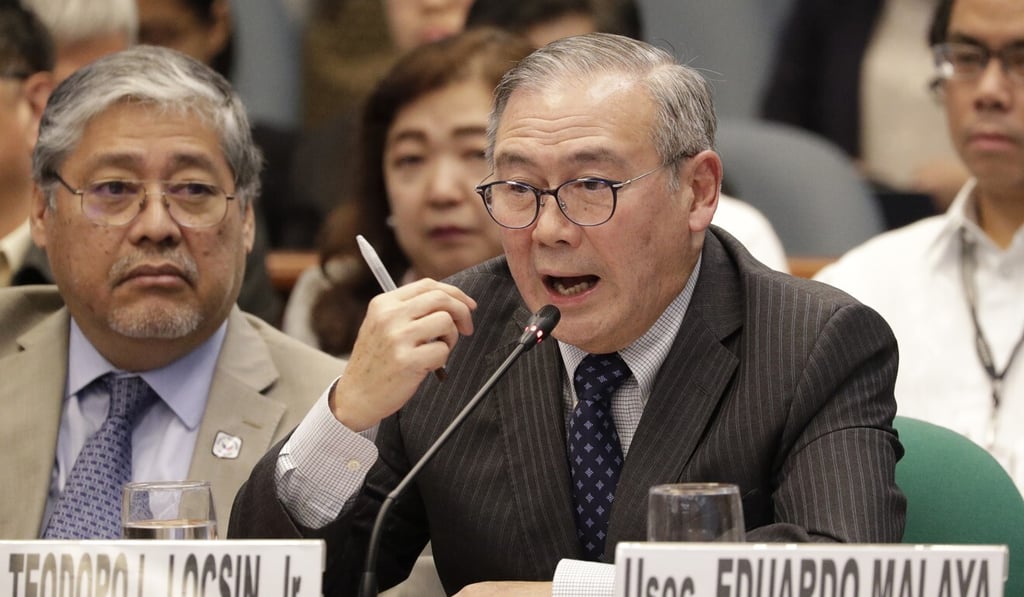Philippines pursuing Sabah claim against Malaysia as ‘we have not forgotten’, says Locsin
- Foreign secretary Teodoro Locsin Jnr vows to reactivate the Philippines’ North Borneo Bureau, saying Manila is changing its stance on the dispute
- Experts question how serious he is – and whether there is an ulterior motive

There’s just one problem: experts in the Philippines say they can’t be sure whether it is serious or not.
Manila’s latest move to assert its sovereignty over the territory, situated at the northern tip of the island of Borneo and currently administered by Malaysia, came on Tuesday when the Philippine foreign secretary Teodoro Locsin Jnr addressed congress.
“I have decided to reactivate the North Borneo Bureau after realising that the rest of the world has forgotten our Sabah claim, casually designating it as another country’s territory when we have not forgotten,” Locsin said during his presentation of next year’s budget for his department.
Commenting on undocumented or stateless residents of Sabah, who are often targeted by Malaysian authorities for repatriation to the Philippines, he added that “we need to proceed very carefully ... They must be Filipino, because Sabah is ours. That’s all there is to it. If Malaysia doesn’t like that, that is too goddam bad for them.”

After the congressional hearing, Locsin tweeted that it would be “treason not to” revive Manila’s claim to the territory. “Since 1986 when [former president] Marcos left, the Sabah claim has been put on the back burner. Well that’s changing,” he added.